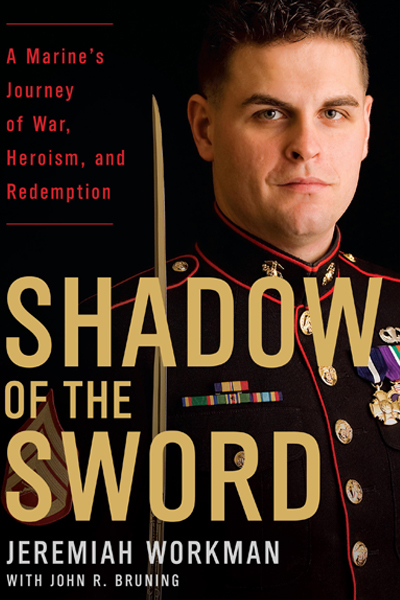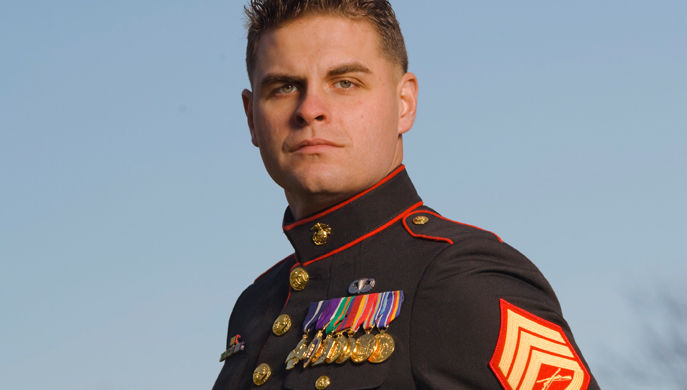
Record date:
Jeremiah Workman: Shadow of the Sword
This is how the story is normally shown: the hero introduced, the mission explained, the vow made, the battle fierce, the rescue victorious, the hero acclaimed. Curtains down, lights out. Story’s over. Left alone in the darkness: the hero and his anger, screaming behind a wall of silence.
An eight-year combat veteran of the U.S. Marine Corps, Jeremiah Workman was decorated for his actions in Fallujah on December 23, 2004. Leading his platoon through a four-hour firefight to rescue a group of trapped Marines, Workman fought room-to-room, floor-to-floor against two dozen heavily-armed insurgents. Months later, when he was awarded the Navy Cross – the second highest medal for valor – it was intended to honor his courage and gallantry under fire. But it took Workman right back to those desperate moments inside the house, and his fallen brothers.
Shadow of the Sword is the story of Workman’s combat experience, both as it happened in 2004 and how it lives within him today in the form of post-traumatic stress disorder (PTSD). Recent estimates have suggested that as many as 45% of all veterans of Iraq and Afghanistan struggle with some form of PTSD, though few – like Workman himself, upon his return home – are prepared to admit it, even to the point of alcoholism, divorce, and suicide. In Shadow of the Sword, Workman describes how the disorder drove his family to the brink, what gave him the strength to overcome denial, and – as the number of American combat veterans continues to grow – how the national discourse about PTSD must change to meet them.
Workman received an honorable discharge as a staff sergeant in 2009. His final assignment in the Marine Corps was with the Wounded Warrior Regiment, helping injured veterans. He lives in Virginia with his wife and young son. He wrote Shadow of the Sword with John R. Bruning.










